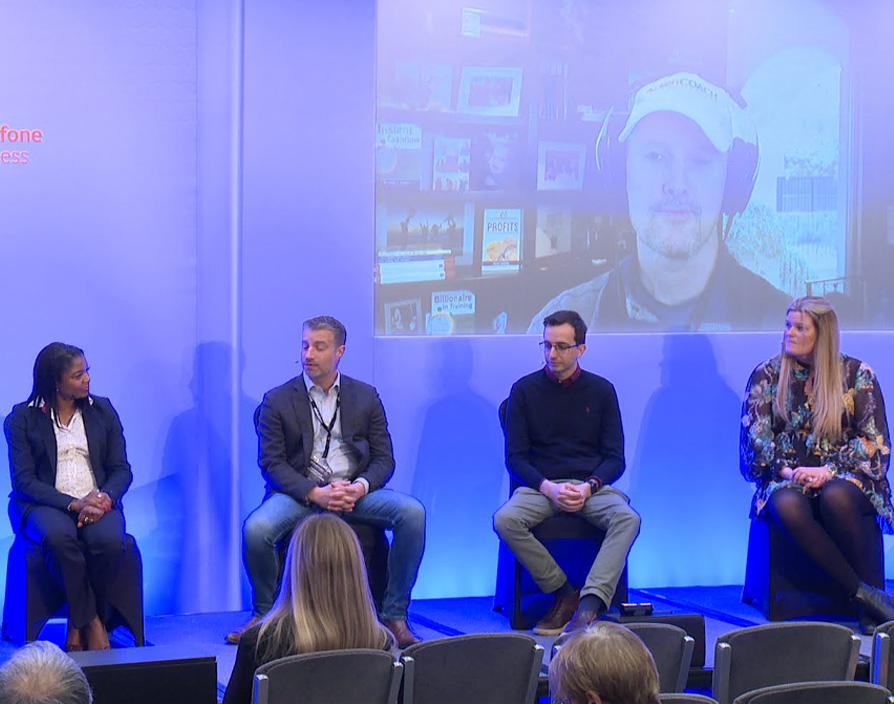What are the common pitfalls when it comes to expanding your business abroad?
Dr Grace Togun Olugbodi, author and creator of the multi-award-winning ‘Race to Infinity@ Maths Board Game Series’, Nick Adams, Vice President, EMEA at Globalization Partners, Deyan Dimitrov, Founder & CEO of Laundryheap, Brad Sugars, Global Founder of ActionCOACH and Sara French, Director, Trade & Growth at London & Partners joined us on the first day of Elite Business on 10 March for the Overseas Expansion talk, speaking about taking your business global – and how it has changed in a post-Brexit world.
Taking your business global is an exciting step. When it comes to expanding abroad, how much of your success is down to luck? Sara believes that even though you can unexpectedly break into new markets successfully, a lot of it is down to strategy. Analyse the data and plan your next venture beforehand, rather than diving into the deep end. She said: “Given that I predominantly work with London based companies and you look at the diversity across the city, there are a lot of companies that will say they’re European by background, have great relationships and networks and can utilise those to fund their business and to go global.
“So, there is that serendipity, their roots where they know the culture and what is happening across borders. But there is also that organic growth and getting orders coming in from the US and India… I would always say use data. Where is your product-market fit? Where is that you know you’ve got your USP. I think it can be the serendipity but I would also look at the data behind it for best traction.”
When bringing your business to a new market, how long do you wait things out? Even when things aren’t going in the right direction, do you hope for the best or retreat quickly? Deyan believes it is important to do your research beforehand and set a clear goal. Sometimes you need to give the market a chance to work and look at small signs of an upward trajectory. Deyan said: “My point is that you don’t randomly choose a city and go there to see if it works. Ideally, you have some information to be able to give it the best chance of working out. Once you’re there, it requires some time. It depends on your business model, it might be 3 months, 6 months or one year.
“But what’s very important is to set the goal very early on and if you’ve already seen other places, you should know what your goal for that market is and give enough power to that market… You have to give the place a chance to make it work… We’ll go to a city and realise it goes much slower than other cities, so we make the choice. Do we invest more resources or do we come back a second time? Which is often very hard to do…”
Expanding to the US can be a tricky venture. The US is said to be one of the most challenging markets to invest in. If businesses wish to expand internationally, it is important to do research beforehand. There are also ways businesses can ‘test’ the waters in a new territory before making a big move. Nick said: “You have to take into account that in the US you have federal law, state law and city law as well. It’s a very difficult process to ensure that you comply with everything that you need out there. It’s also the toughest market in the world. It’s incredibly difficult to be successful in the US.
“Be very careful when you look to go into the US. A lot of businesses would begin by potentially looking at distributors or channel markets and look to get a presence there without having to set up their entity and then hire people. There are other ways you can just test the market, to begin with. The very last thing you want is to try a new market, and forever reason it hasn’t worked and you pull out because it’s very difficult to go back a second time.”
Do you hire locally or bring your employees abroad? Brad said a boots on the ground approach is the way forward with his business, ActionCOACH. He believes local talent can understand their people better, especially when it comes to the cultural norms of the country. He said: “We go local. The whole thing of having your culture from the main office to another office really comes down to who you employ in that market.
“You can employ someone that fits the culture of your organisation, you don’t have to send someone from a foreign office to that place to recruit someone with a similar culture to yourself. If your culture is well-defined, in other words, documented and written, and your vision is well-defined and part of what you do every day, you can hire a local and do that. We are very clear on hiring locals when we move into any market. To simply put it, they know what they’re doing in that market. Someone with 20 years of business experience in that market will outperform anyone we send from anywhere else, they just will.”
Thinking about expanding to Europe after Brexit? With new legislation in place, businesses should keep updated on the latest rules and guidelines – or else may face pitfalls. Dr Grace shared her experience: “We had stock stuck at the border for 7 months, so much the so the stock that we were trying to get into the UK and then back out to America from Europe, didn’t make it to America. Most of it didn’t make it into the UK. And altogether there were 7 months of delays. Just before Brexit we were gradually not spending as much time in the European markets as we would normally, just because we also wanted to see what would happen in terms of sales in Europe. So, we are only just going back in. Even with that, I found a distributor to handle all of that because I can’t deal with it. So, we found a way to deal without having to do it directly, so we sorted it out with a distributor.”
Share via:








































